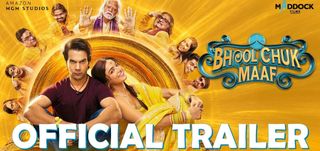Ek Vivaah Aisa Bhi Movie Review
Nobility as a quality in cinema seems almost the hallmark of Sooraj Barjatya's cinema. Specially during these times of stress cynicism and violence, any film that doesn't belch out venomous fumes is worthy of applause.
But wait. Before we cheer "Ek Vivaah... Aisa Bhi" for walking the straight and narrow road, let's be warned. The route taken by the narration looks like a tepid and technically shoddy facsimile of Anil Ganguly's "Tapasya", which was produced by Barjatya, and more recently, the Barjatya-directed "Vivah" that won extra points for its elegant and fluent simplicity of narration.
Director Kaushik Ghatak takes us through Barjatya's joint-family system. Yes, even the infamous 'gaajar ka halwa' (sweet dish made out of shredded carrot) makes its mouth-watering appearance during the first wedding that rolls out at the start.
Yup, the film begins and ends with elaborate weddings replete with the whole cast plus sundry junior artists dressed in garish pinks, mauves and greens prancing to the sound of festivities.
But somewhere this prolonged music-video 'Vivaah...' lacks the graceful zing of the other Shahid Kapur-Amrita Rao film two years ago which had enough meals and morning walks to make our digestive system feel balanced out.
"Ek Vivaah..." is lopsided in its fervent festivity. The first-half where a romance grows between two small town singers Sonu Sood and Eesha Koppikhar creaks with monotonous semi-classical songs.
The music composed by Ravindra Jain is simply awful. Jain had done the songs and music in the original film "Tapasya". One still remembers Kishore Kumar's theme song "Jo raah chuni tuney" with affection.
The songs and music in "Ek Vivaah... Aisa Bhi" are dreadfully dull. The film gets by on the strength of Bengali litterateur Ashapurna Devi's powerful story of a self-willed woman who sacrifices marriage to look after her siblings.
Parts of the second-half capture the emotional aroma of the original story. Specially effective is the relationship between the spinster and her devoted soulmate who refuses to marry any other girl.
Suchitra Sen and Ashok Kumar shared a similar platonic rapport in Asit Sen's "Mamta". And so did Raakhee Gulzar and Parikshit Sahni in "Tapasya". They had the spirit.
Eesha and Sonu are sincere, but they lack the gravity and ingrained wisdom and dignity required to portray lives that go beyond self interest.
What works for this "Vivaah..." is its intrinsic integrity. At a time when everyone is making films that either go for the guffaw or head for the libido, here's a film that tackles very basic traditional values and the feelings underlining the colourful festivities related to the Hindu wedding. The language is often so old fashioned that it borders on the archaic.
But at least nobody is acting oversmart.



















